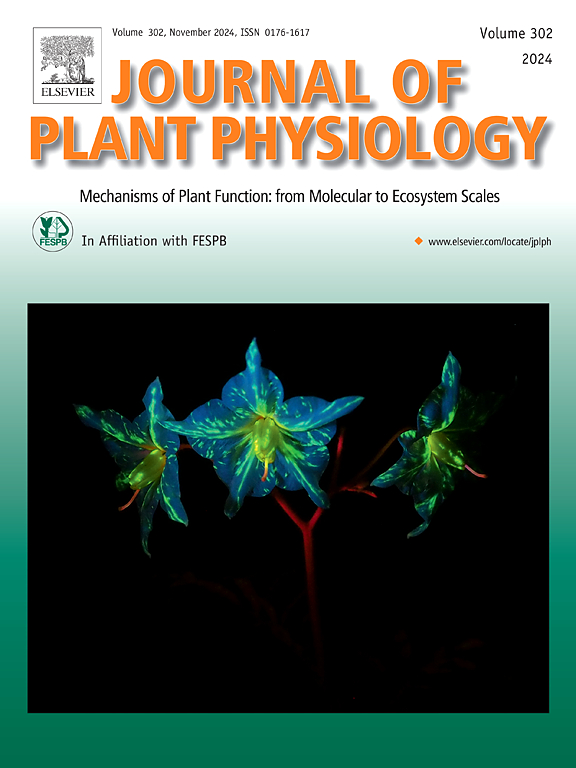Current understanding of HAK potassium transporters in plant development and stress tolerance
IF 4.1
3区 生物学
Q1 PLANT SCIENCES
引用次数: 0
Abstract
Potassium (K+) is a critical nutrient for plant growth and development. The K+ uptake/high-affinity K+ transporter/K+ transporter (KUP/HAK/KT) family comprises high-affinity K+ transport proteins in plants, with vital roles in K+ uptake and transport, especially under K+-deficient conditions. In this review, we summarize the functions of HAK transporter proteins in mediating K+ uptake and plant growth and development. We also discuss their roles in enhancing plant tolerance to salt, drought, K+ deficiency, and virus stresses, as well as their regulation. We propose that the functions of HAKs in regulating photosynthesis and growth, as well as the mechanisms by which HAKs interact with related genes and proteins to carry out their functions, warrant future investigation. The studies discussed here are important for improving the efficiency of K+ fertilization, enhancing crop yield and quality, and promoting sustainable agriculture.
HAK钾转运体在植物发育和抗逆性中的研究进展。
钾(K+)是植物生长发育的重要营养物质。KUP/HAK/KT家族是植物中钾离子吸收/高亲和转运蛋白家族,在钾离子吸收和转运中起重要作用,特别是在缺钾条件下。本文就HAK转运蛋白在介导植物K+吸收和生长发育中的作用作一综述。我们还讨论了它们在提高植物对盐、干旱、缺钾和病毒胁迫的耐受性中的作用,以及它们的调控。我们认为,HAKs在调节光合作用和生长中的作用,以及HAKs与相关基因和蛋白质相互作用的机制,值得进一步研究。研究结果对提高钾肥施用效率,提高作物产量和品质,促进农业可持续发展具有重要意义。
本文章由计算机程序翻译,如有差异,请以英文原文为准。
求助全文
约1分钟内获得全文
求助全文
来源期刊

Journal of plant physiology
生物-植物科学
CiteScore
7.20
自引率
4.70%
发文量
196
审稿时长
32 days
期刊介绍:
The Journal of Plant Physiology is a broad-spectrum journal that welcomes high-quality submissions in all major areas of plant physiology, including plant biochemistry, functional biotechnology, computational and synthetic plant biology, growth and development, photosynthesis and respiration, transport and translocation, plant-microbe interactions, biotic and abiotic stress. Studies are welcome at all levels of integration ranging from molecules and cells to organisms and their environments and are expected to use state-of-the-art methodologies. Pure gene expression studies are not within the focus of our journal. To be considered for publication, papers must significantly contribute to the mechanistic understanding of physiological processes, and not be merely descriptive, or confirmatory of previous results. We encourage the submission of papers that explore the physiology of non-model as well as accepted model species and those that bridge basic and applied research. For instance, studies on agricultural plants that show new physiological mechanisms to improve agricultural efficiency are welcome. Studies performed under uncontrolled situations (e.g. field conditions) not providing mechanistic insight will not be considered for publication.
The Journal of Plant Physiology publishes several types of articles: Original Research Articles, Reviews, Perspectives Articles, and Short Communications. Reviews and Perspectives will be solicited by the Editors; unsolicited reviews are also welcome but only from authors with a strong track record in the field of the review. Original research papers comprise the majority of published contributions.
 求助内容:
求助内容: 应助结果提醒方式:
应助结果提醒方式:


